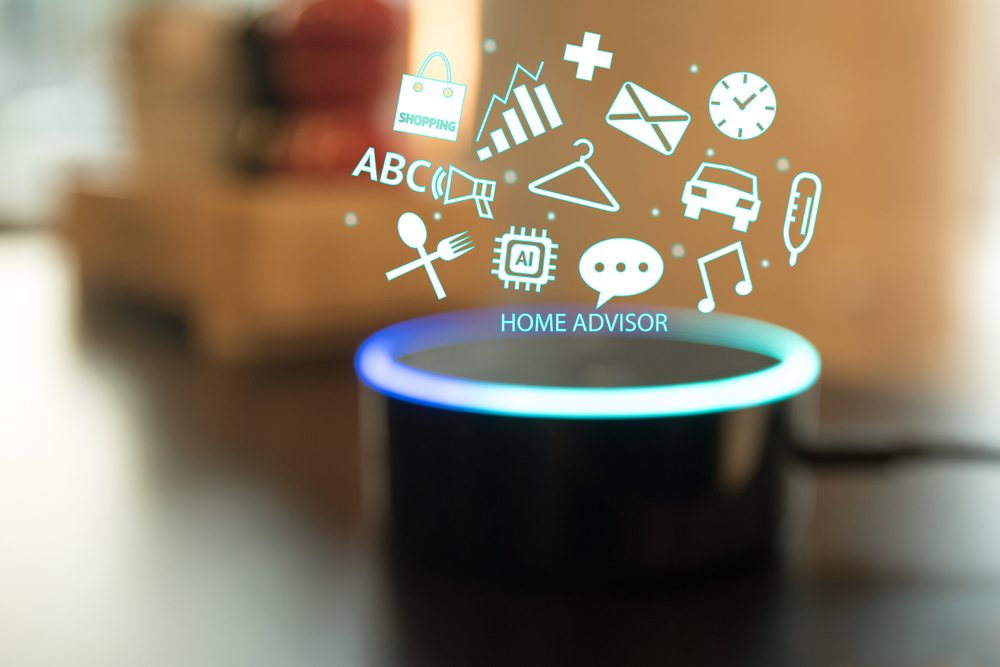Hey Google, can you tell me how voice search is killing my SEO?
by Sara WescheWho would have thought a 6"x 4" speaker would change your life? Whether it's Google Home or Alexa - sidenote, at 70%, Alexa currently dominates the US speaker market - smart speakers are moving into homes and businesses at a rapid pace. According to research from NPR and Edison Research, 1 in 6 Americans owns a smart speaker. That's a 128% increase from a year ago.
 Combine smarts speakers with mobile voice technology - your old friends, Google Assistant, Siri, Cortana, and voice search have become a dominating force for marketers and SEO. In 2016, 1 in 5 mobile searches were conducted via voice search. (Mary Meeker, 2017 Internet Trends Report) Currently, there are over one billion voice searches per month. (Alpine.AI) And, 50% of all searches will be voice searches by 2020, according to comscore.
Combine smarts speakers with mobile voice technology - your old friends, Google Assistant, Siri, Cortana, and voice search have become a dominating force for marketers and SEO. In 2016, 1 in 5 mobile searches were conducted via voice search. (Mary Meeker, 2017 Internet Trends Report) Currently, there are over one billion voice searches per month. (Alpine.AI) And, 50% of all searches will be voice searches by 2020, according to comscore.
“Of all the disruptions that are taking place in all the things technology is bringing into our space, voice is among the most disruptive,” said Graeme Pitkethly, the chief financial officer of Unilever PLC.
Voice search has two major effects on brands:
#1 - How You Say It
Bottom line, you say it differently than you would type it. On your desktop or mobile, you might type "Store hours for Starbucks" or "Store Hours for Starbucks near me". But, with voice, the user isn't inhibited by having to type each word. They may say "Hey Google, what are the store hours for the Starbucks on Beltline and Knapp?" or something more conversational, such as, "Hey Google, how late is Starbucks open?"
#2 - The Algorithms
“When it comes to voice search you go first position or you go home because beyond the first or second place there is no future,” Sebastien Szczepaniak, former Amazon executive who now heads e-commerce for Nestle SA.
Consumers get one to two options when using voice. When a consumer doesn't specify a brand, Alexa, for example, uses the "Amazon's Choice' algorithm which implies a well-rated, well-priced item that ships with Prime. If the consumer has purchased before, Amazon will usually select the brand previously purchased. Like most algorithms, Amazon won't disclose exactly how it all works. Google Home works using apps or their own Google Express. If a consumer doesn't specify shopping within a specific app, Google will select one of their current stores based on your location and delivery day.
At this time, brands cannot pay to be served up first.
In conclusion...
The consumer impact for voice search can be felt right now as users are already using voice to look for new restaurants or call up a 24-hour locksmith. But, it won't be long before B2B organizations begin to feel it just as strongly. Smart speakers will be in the workplace.
"Hey Google, can you send me a list of the top rated architects in Michigan." or "Hey Google, please call a local paper shredding service." and "Alexa, I need a supplier for commercial cleaning products."
Optimization for voice search will be imperative for organizations sooner than you think. Now is the time to start thinking about your voice strategy if you haven't already.
“The guy who will win is the guy who will have iconic brands and products,” said L’Oreal SA’s Chief Digital Officer Lubomira Rochet. “I believe voice is as big as the internet—and Google—when it came.”
Additional Sources:
The Next Big Threat to Brands (Yes, Amazon's Behind It)
How To Hack SEO in 2018
Share this entry
-
Share on Facebook
Share on Facebook
-
Share on Twitter
Share on Twitter
-
Share on Google+
Share on Google+
-
Share on Linkedin
Share on Linkedin
-
Share by Mail
Share by Mail











.png?width=100&height=51&name=back-to-top-1%20(1).png)
